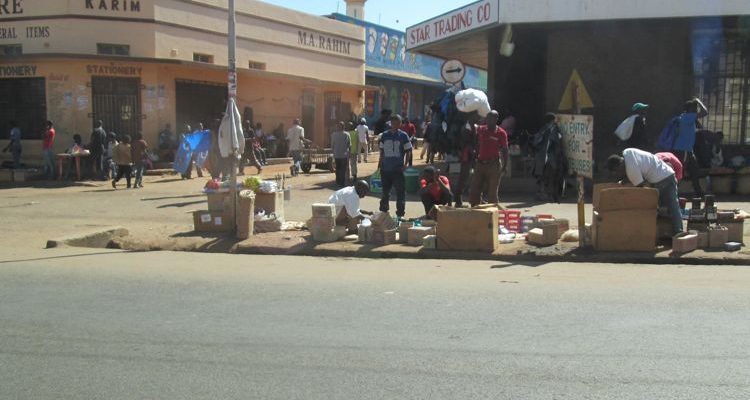
Street vending has returned to the streets of Lilongwe, Malawi, after several weeks of fierce battles between Lilongwe City Assembly authorities and street vendors. The battles appeared so intense that it was assumed this was the end of vending along the streets of Lilongwe.
However, the chasing of vendors from the streets of Lilongwe continues and has now become a game of hide and seek. It’s no longer a scary adventure for the vendors as they partly enjoy the chase. They are always alert to be confronted at any time, and the arrangement of their merchandise displays tells you they are alert like soldiers.
There is usually a surprising spectacle each day when you hear loud screaming noise. People run, whistle, and jump in all directions like it’s nobody’s business. It’s normally a free hundred-meter race every day between City Assembly authorities and street vendors.
You will always see a Lilongwe City Assembly pickup truck driving around town, and then you know and understand the meaning of the loud noise. Street vendors run away every day to save their merchandise from getting confiscated by Lilongwe City Assembly authorities.
The Challenge
Lack of storage, theft, or damage to stock are common issues for street vendors in Malawi. By-laws governing street trade can be confusing, and licenses are hard to obtain, leaving many street vendors vulnerable to harassment, confiscations, and evictions.
There are key factors in street vending in Malawi. It is significantly affected by various factors, including education, geographical distance, business capital, and social capital.
There are many driving forces and working conditions for the vendors. Low barriers to entry, limited start-up costs, and flexible hours are some of the factors that attract street vendors to the occupation. Many people enter street vending because they cannot find a job in the formal economy.
Purpose of street food vendors
Street foods are ready-to-eat food and beverages prepared and/or sold by vendors or hawkers, especially in the streets and other similar places. They represent a significant part of urban food consumption for millions of low- and middle-income consumers in urban areas on a daily basis.
The problem with street vendors in Malawi
Lack of storage, theft, or damage to stock are common issues. By-laws governing street trade can be confusing, and licenses are hard to obtain, leaving many street vendors vulnerable to harassment, confiscations, and evictions. Street vending also causes a lot of disadvantages, including traffic congestion, environmental pollution, visual pollution, and reduced food safety. It is important to effectively manage street vending to reduce these significant negative effects.
Conclusion
The government of Malawi must address the issue of street vendors once and for all. Authorities must recognize their presence and privilege. Increasing tax collection should be the government’s top priority. Therefore, street vendors should be fully accommodated.
Street vendors in Lilongwe, Malawi, have a singular desire: to be able to work free from evictions, harassment, and fines that have become devastatingly commonplace in recent years. In the face of often violent exclusion, street vendors in Lilongwe and all cities have called upon local and national governments for change, repeatedly. They consistently voice their desire to work together to build a more equitable system, where fair regulations are clearly communicated and respected.
Providing alternative places where vendors can conduct their business freely is the lasting solution to the never-ending conflict in town, seven days a week, 365 days a year. Otherwise, the government will continue to lose a significant amount of money in its efforts to clear vendors from the streets, as vendors themselves are unwilling to quit, as it is their means of survival.














